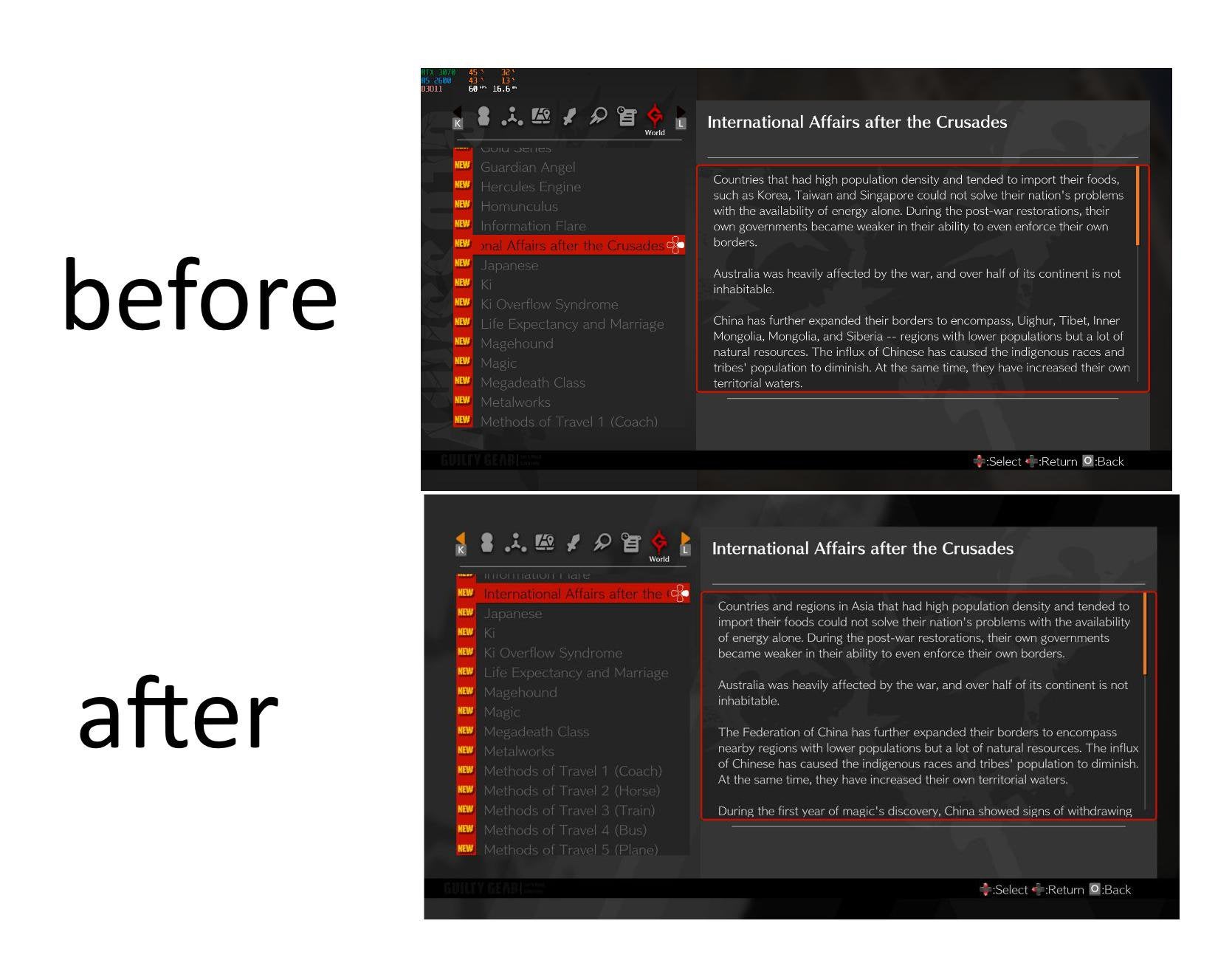Guilty Gear Strive quietly removed references to Uyghur, Tibet and Taiwan
To help you understand its convoluted, globe-spanning story, Guilty Gear Strive comes with an extensive in-game glossary. But late last month, players discovered that one entry had been altered to remove references to less fantastical elements of Chinese history.
Arriving shortly after launch, patch 1.03 was largely unremarkable. But users on ResetEra (via Eurogamer) have since spotted an unmentioned change in the update, rewording two sentences on a lore entry concerning "International affairs after the Crusades" to remove references to countries including Taiwan, Tibet and Uyghur.

The first altered sentence omitted mention of Korea, Taiwan and Singapore, originally reading: "Countries that had high population density and tended to import their foods, such as Korea, Taiwan and Singapore could not solve their nation's problems with the availability of energy alone."
The second similarly cut mention of specific region names from the following: "China has further expanded their borders to encompass Uygher, Tibet, Inner Mongolia, Mongolia and Siberia - regions with lower populations but a lot of natural resources."
At time of writing, neither Bandai Namco nor Arc System Works have explained the change (Eurogamer notes that it was unable to get response from either, and I've since sent my own request for comment). But whether directly or not, there's a strong suggestion that these changes were made to ensure the game's acceptance in China—a country with strict regulations on games publishing.
Other countries, like Australia and China itself, retain their names in the copy. But considering accusations of genocide against the Uyghur people, reports of mass labour camps in Tibet and increased tensions between China and Taiwan, Bandai Namco may be choosing to play it safe.
Chinese-developed games like Genshin Impact already filter out mentions of regions like Hong Kong or Taiwan. But pressure to access China's massive games market has also pressured international developers, whether it's Blizzard banning a Hearthstone pro for protest comments or Taiwanese indie horror Devotion spending two years shut out of Steam
from PCGamer latest https://ift.tt/3hu5sc4
To help you understand its convoluted, globe-spanning story, Guilty Gear Strive comes with an extensive in-game glossary. But late last month, players discovered that one entry had been altered to remove references to less fantastical elements of Chinese history.
Arriving shortly after launch, patch 1.03 was largely unremarkable. But users on ResetEra (via Eurogamer) have since spotted an unmentioned change in the update, rewording two sentences on a lore entry concerning "International affairs after the Crusades" to remove references to countries including Taiwan, Tibet and Uyghur.

The first altered sentence omitted mention of Korea, Taiwan and Singapore, originally reading: "Countries that had high population density and tended to import their foods, such as Korea, Taiwan and Singapore could not solve their nation's problems with the availability of energy alone."
The second similarly cut mention of specific region names from the following: "China has further expanded their borders to encompass Uygher, Tibet, Inner Mongolia, Mongolia and Siberia - regions with lower populations but a lot of natural resources."
At time of writing, neither Bandai Namco nor Arc System Works have explained the change (Eurogamer notes that it was unable to get response from either, and I've since sent my own request for comment). But whether directly or not, there's a strong suggestion that these changes were made to ensure the game's acceptance in China—a country with strict regulations on games publishing.
Other countries, like Australia and China itself, retain their names in the copy. But considering accusations of genocide against the Uyghur people, reports of mass labour camps in Tibet and increased tensions between China and Taiwan, Bandai Namco may be choosing to play it safe.
Chinese-developed games like Genshin Impact already filter out mentions of regions like Hong Kong or Taiwan. But pressure to access China's massive games market has also pressured international developers, whether it's Blizzard banning a Hearthstone pro for protest comments or Taiwanese indie horror Devotion spending two years shut out of Steam
via IFTTT

Post a Comment